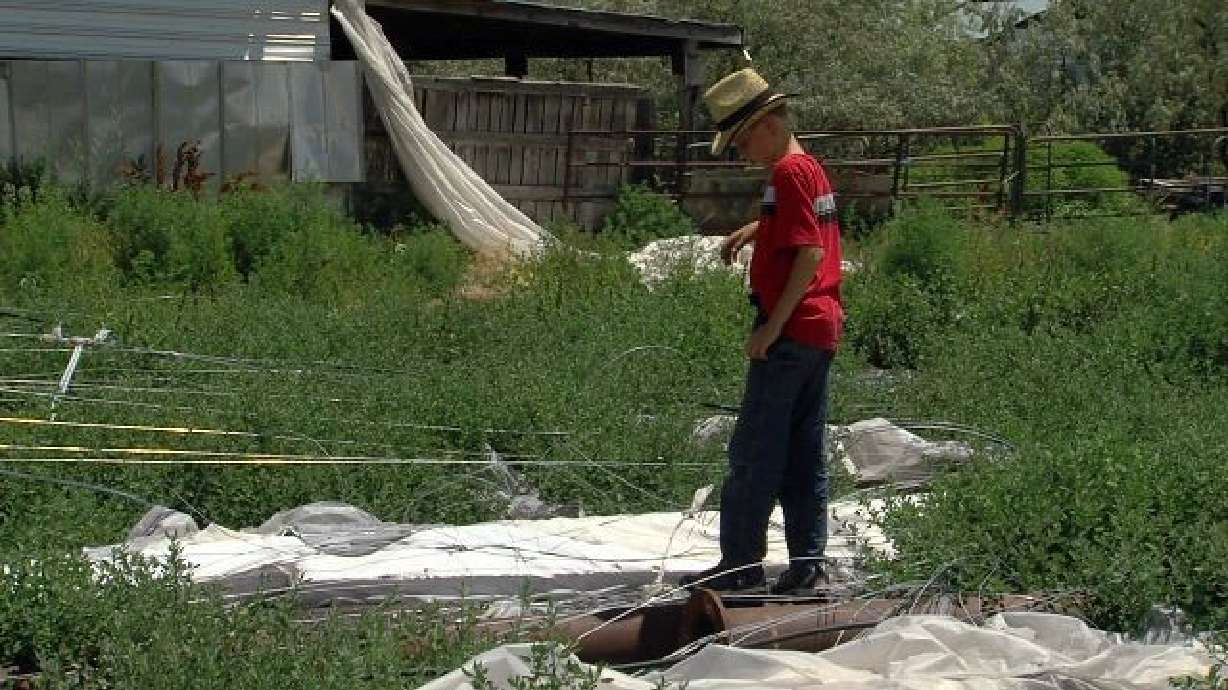Estimated read time: 2-3 minutes
This archived news story is available only for your personal, non-commercial use. Information in the story may be outdated or superseded by additional information. Reading or replaying the story in its archived form does not constitute a republication of the story.
OREM — Community-supported agriculture has been hailed by some as the future of growing. Instead of going the grocery store for your fruits and veggies, you buy a share in a local farm. But CSAs, as they're known, are not without risk.
Dale Allred, the farmer who planted Jacob's Cove Heritage Farm, calls it a disaster. His customers would not disagree.
"I can't even describe it," Allred said "My kids...all the hard work we've put into it."
Through the weeds, you can hardly see that this once was a successful CSA with about 300 shareholders in the farm. At least it was last season. There is not much left now.
"It sounded like a good thing and the time was right and the price was right," said Betsy West. Betsy and husband Larry are two of those shareholders who paid $245 to sign up in March to find out in May that Jacob's Cove went under. And with no refund or promise of refund, the Wests were skeptical.
"We thought wow we really didn't do our research into this, maybe it's a scam," West said. "All we got was a flier on our door and anybody can make a website."
Colton Soelberg, a customer of Allred's, assures people that this CSA and others are not scams, but they are risks.
"It would be nice to assume that a farm like this it would never happen but that is always the risk," Soelberg said. He owns Pizzaria 712, Communal, and Mountain West Burrito and says these farmers have few safety nets and when something goes wrong. Oftentimes, it pushes them out of business.
"Having worked in New York and San Francisco where the networks with farmers are a lot more tight, they're more connected with restaurants," Soelberg said. "The farmers markets are more robust. Longer growing seasons. Obviously, the infrastructure is better there."
Allred says the lack of infrastructure pushed him out of farming, at least at this location. A farmer, leasing the land, he's had problems with right of ways on the property as well as easements. Finally, he was told to tear his greenhouses down.
"We had no way to continue," Allred said.
For the time being, he's trying to pick up the pieces of this farm literally and, hopefully, start a new farm.








